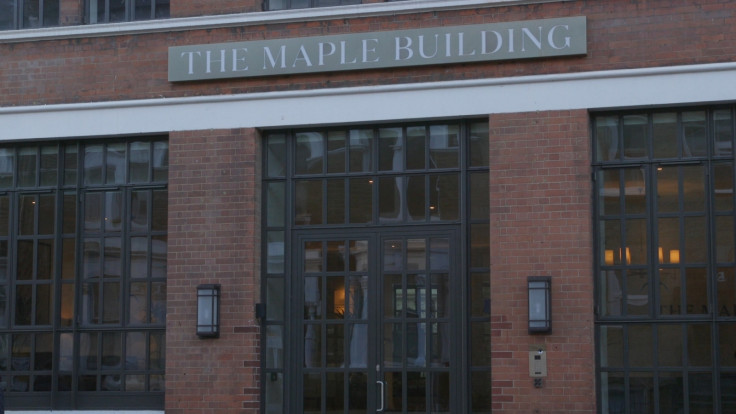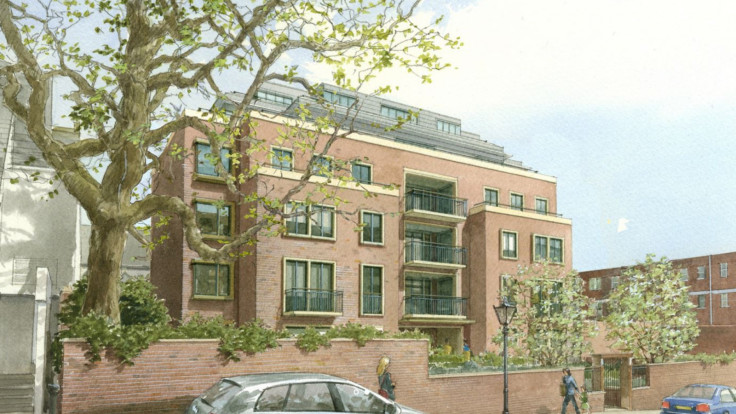Meet Gary Linton, the young property developer who went from his living room to a £300m portfolio
Linton, 31, just completed The Maple Building, his flagship scheme in Kentish Town.
By the time he hit 30, Gary Linton had £300m worth of London residential property developments in his pocket. Not bad for someone who started from his living room refurbing a two-bedroom flat bought with some inheritance from his grandfather and a bit of finance from the bank.
Linton's family has a background in commercial property. But it was around the time he studied for an MSc in real estate at Cass Business School, and beginning as a graduate at DTZ – a commercial property firm – that he discovered a bigger interest in residential.
"It probably came just from reading newspapers, reading about people like the Candy brothers, reading about luxury development booming in London, in Chelsea, and I thought that sounds quite fun," he told IBTimes UK.

His first project, the two0bed flat, was on Gloucester Road in Kensington. It was, by his own admission, a "pretty steep" learning curve. "If I compare to how things are done now, compared to things done then, it was slightly all over the place," he said. He got a builder in on a friend's recommendation and teamed up with an interior designer.
"Looking back on it, it was very much learning on the job. I didn't plan everything out, I didn't know exactly what I wanted to achieve, it was more just a gut instinct," Linton said. That gut instinct paid off, and he made a profit, allowing him to move on to the next project. The seed for what would become The Linton Group was planted on Gloucester Road.
"I started to enjoy it, had a few successes, and I managed to through networking gain some interest from external investors and development finance banks, and then I came across my first multi-unit project, which was a scheme in Chelsea, in Fulham Road," he said, referring to it as his "landmark, game-changing project".
There he converted an old character pub with high ceilings and big arch sash windows. He said it was an "interior design-led project" with modern touches that respected the period features of the building, earning it an award from the Evening Standard.
And it was here he met his future business partner, the interior designer who worked with him on the Fulham Road pub, Gemma Gordon Duff. Linton says he had a "lightbulb moment", took her out for lunch, and soon the interior design company Gordon Duff & Linton was founded to work on The Linton Group's development projects.
Other developments quickly followed, with new private investors and the sizeable backing of a fund, and Linton acquired more sites, moving out of prime central London areas to places such as Dalston, Battersea, Paddington, and Kentish Town, where there was growing potential for developers.
"Fast forward on from six, seven, eight years ago, when it was just me sitting in my living room refurbishing single flats, we've now built up a development pipeline of about £300m in development assets across London, all predominantly multi-unit apartment schemes," he said. Now 31, he has a team of around 25 people across the development and interior design businesses.
His latest scheme is The Maple Building in Kentish Town, just up from the Tube station, which launched in Autumn 2016. It is his new flagship scheme, with its 50 luxury flats and seven penthouses. Half of the flats have so far sold, mostly to local owner-occupiers. The building is a former Victorian warehouse so has bags of industrial charm. This, and the increasing desirability of Kentish Town as area to live, is what drew Linton to the building.

"[It has] a lot of character, which is few and far between these days in London, where there is obviously a lot of new-build development," Linton said. "There can be some amazing schemes in new-build, with great architecture, but they can never quite achieve that character you get with a period conversion." It's not just about aesthetics. Amid stamp-duty hikes and Brexit, the top of London's property market is increasingly competitive. To sell, prime property must stand out from the crowd, and period features do just that, adding what Linton calls "a rarity factor".
And that's why he is particularly excited about what will become the new flagship scheme when it completes in late 2018, a 17 apartment project in Hampstead Village, with a gross development value of £85m. "It's a fantastic location, perched on top of the hill, panoramic views over London from two out of the four elevations and from over half the units due to its elevated position in Hampstead," he said.
"It's Hampstead Village itself, which is obviously a beautiful village area, it's like no other place in London, where you get this great village feel. You could almost be in the countryside but you're in zone two and you're 15 minutes from the West End.
"The planning environment there – it's a conservation area, so planning is very tightly controlled – so there are virtually no new developments [which] take place right in the heart of Hampstead Village. There are several which might be on the fringe, a five-ten minute walk away, but none in the village.
"There's not been a new one there, a proper scale development, for nearly 20 years. So for us it's an amazingly exciting opportunity... There has been nothing to compare and there is nothing in the pipeline to compare. And there probably might not be for it could be another 20 years before one comes up, it may never come up because of the location."

Despite the issues in the prime London market, Linton continues to buy sites and develop projects in the city. He says London is now and has always been a series of micro-markets. "There are certain areas of London, or certain locations within a specific area, where a scheme will outperform other areas," he said. "There are certain micromarkets which are underpinned by strong, local, domestic demand, which will outperform.
"Needs-based buyers are very much there in London... They are cautious. They are seeing they have a bit more choice at the moment, so they're selective. They're not rushing their decisions. They're going to wait for the right product.
"So it's very much a flock to prime, best in class developments... whereas any development which is slightly secondary, in terms of its location or the layouts or the outlook, things like that will start to look challenging in an uncertain environment."
© Copyright IBTimes 2024. All rights reserved.






